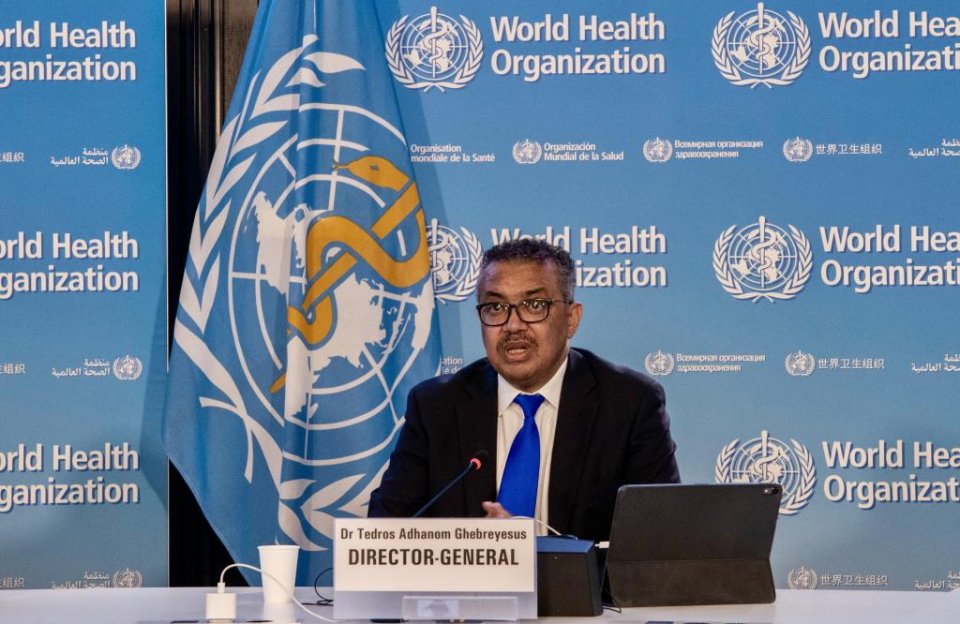The World Health Organisation (WHO) on Saturday declared the monkeypox outbreak, which has affected nearly 16,000 people in 72 countries, to be a global health emergency — the highest alarm it can sound.
‘I have decided that the global monkeypox outbreak represents a public health emergency of international concern,’ WHO chief Tedros Adhanom Ghebreyesus said at a press conference.
He said a committee of experts who met last Thursday had been unable to reach a consensus, so it fell on him to decide whether to trigger the highest alert possible.
‘WHO’s assessment is that the risk of monkeypox is moderate globally and in all regions, except in the European region where we assess the risk as high,’ he added.
Monkeypox has affected over 15,800 people in 72 countries, according to a tally by the US Centers for Disease Control and Prevention (CDC) published on 20 July.
A surge in monkeypox infections has been reported since early May outside the West and Central African countries where the disease has long been endemic.
On 23 June, the WHO convened an emergency committee of experts to decide if monkeypox constitutes a so-called Public Health Emergency of International Concern (PHEIC) — the UN health agency’s highest alert level.
But a majority advised Tedros that the situation, at that point, had not met the threshold.
The second meeting was called on Thursday with case numbers rising further, where Tedros said he was worried.
‘I need your advice in assessing the immediate and mid-term public health implications,’ Tedros told the meeting, which lasted more than six hours.
‘In light of the evolving monkeypox outbreak with over 16,000 reported cases from 75 countries and territories, I reconvened the emergency committee,’ Tedros later tweeted. ‘Based on the International Health Regulations criteria, I decided to declare this outbreak a Public Health Emergency of International Concern.’
In light of the evolving #monkeypox outbreak with over 16,000 reported cases from 75 countries & territories, I reconvened the emergency committee. Based on the Intl. Health Regulations criteria, I decided to declare this outbreak a Public Health Emergency of Intl. Concern. https://t.co/jtSj4pZTvl
— Tedros Adhanom Ghebreyesus (@DrTedros) July 23, 2022
A viral infection resembling smallpox and first detected in humans in 1970, monkeypox is less dangerous and contagious than smallpox, which was eradicated in 1980.
95% of cases have been transmitted through sexual activity, according to a study of 528 people in 16 countries published in the New England Journal of Medicine — the largest research to date.
The European Union’s drug watchdog on Friday recommended for approval the use of Imvanex, a smallpox vaccine, to treat monkeypox.
Imvanex, developed by Danish drugmaker Bavarian Nordic, has been approved in the EU since 2013 for the prevention of smallpox.
It was also considered a potential vaccine for monkeypox because of the similarity between the monkeypox virus and the smallpox virus.
The first symptoms of monkeypox are fever, headaches, muscle pain and back pain during the course of five days.
Rashes subsequently appear on the face, the palms of hands and soles of feet, followed by lesions, spots and finally scabs.
🚨 BREAKING:
— World Health Organization (WHO) (@WHO) July 23, 2022
"For all of these reasons, I have decided that the global #monkeypox outbreak represents a public health emergency of international concern."-@DrTedros pic.twitter.com/qvmYX1ZBAL
Sign up for the FREE Weekly Newsletter from Spain in English.
Please support Spain in English with a donation.
Click here to get your business activity or services listed on our DIRECTORY.


